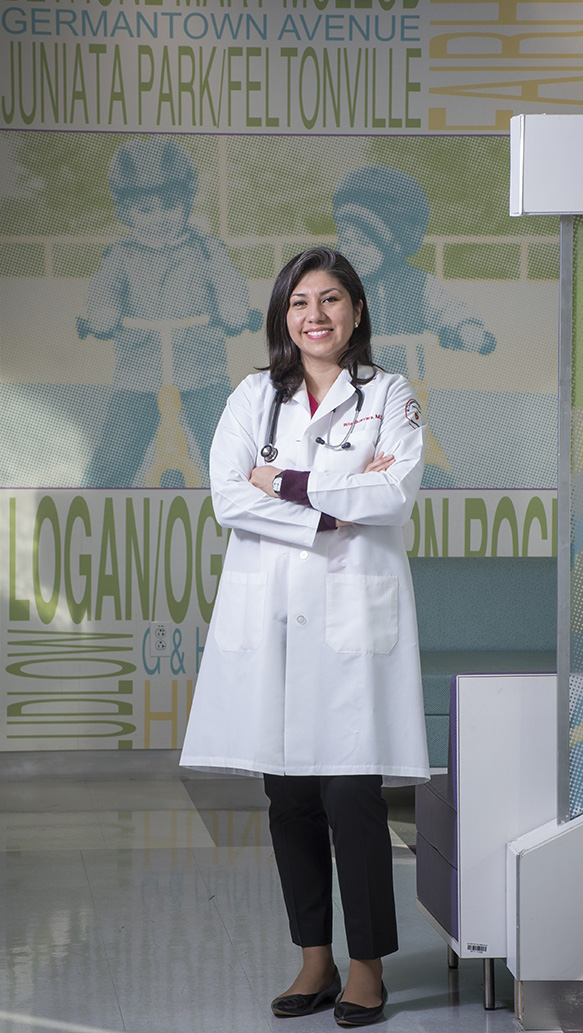Diversity encompasses numerous layers — ethnicity, religion, sexual orientation, socioeconomic background and language, just to name a few examples. Language, both verbal and nonverbal, is fundamental in how we communicate, emote, learn from one another and ultimately better serve our patients. I am one of only two Latina providers in my academic pediatric practice, where a little under half of our patient population is Latino. We are both bilingual, and several of our other providers also speak Spanish well enough to conduct full patient encounters. Some have more experience with Caribbean and Mexican cultures than I do as a Peruvian-American. It's incredibly fulfilling to work in a place where I am constantly learning more about my own culture and others from both my patients and my colleagues.

Pediatrician Rita Guevara earned an MS in the Drexel Pathway to Medical School program prior to her Drexel medical degree. She completed her residency at St. Christopher's Hospital for Children in 2015 and was one of three residents in her class chosen for a fourth year as chief resident, a leadership position equivalent to junior faculty.
Physician visits were stressful experiences for many of my family members. They struggled to communicate their questions and concerns because English was not their first or their preferred language, especially when it came to discussing their health. I know the distress and frustration that come with being on the patient end of a conversation fractured by a language barrier. It means so much to me to speak with my patients and their families in Spanish, and I'm proud that so many of my co-workers can do the same with Spanish or any number of other languages. My family's experience has made me more sensitive to how I speak with families whose language I don't know. When an interpreter is not available in person, we can access live interpretation by video or phone. As cumbersome and time-consuming as those interfaces may seem at times, I view them as vital tools to ensure that I can provide every patient with the best quality of care possible.
Medical students and residents often experience language barriers in caring for patients when they rotate through our clinic, and these encounters are great opportunities to engrain in them the importance of effective communication. Instead of asking if a parent speaks English, I teach our trainees to ask families if they have a language preference for communicating and for written materials they may receive. I remind trainees to speak in short sentences when using the interpreter phones and to pause to give the interpreter time to process the information before relaying it to the family. I encourage them to make eye contact with the family when they speak and to be conscious of all the nonverbal body language they can use. Even though I came to appreciate the importance of communication across different languages early on in life, many of the skills I utilize on a daily basis are ones learned during my training at Drexel University College of Medicine.
Successfully completing the Drexel Pathway to Medical School (DPMS) program almost 10 years ago is one of my proudest achievements. Drexel Pathway to Medical School gives people from socioeconomically disadvantaged backgrounds conditional acceptance into the medical school provided they complete certain academic requirements through a one-year master's program. It was a very humbling, but at the end a very empowering, experience. I forged lifelong bonds with incredible individuals, each with their own story of diversity, whose accomplishments and successes in their respective medical fields make my heart swell with admiration. This program is making a significant contribution to diversity in medicine, and its graduates further strengthen the medical school's already robust diversity education and inclusion initiatives.
If you are interested in learning more about diversity at the College of Medicine or becoming more involved, I encourage you to look at the newly updated diversity section of the website. It's a great resource for current students, trainees, faculty and alumni.
—Rita P. Guevara, MD '12, Attending Physician, St. Christopher's Hospital for Children Center for the Urban Child